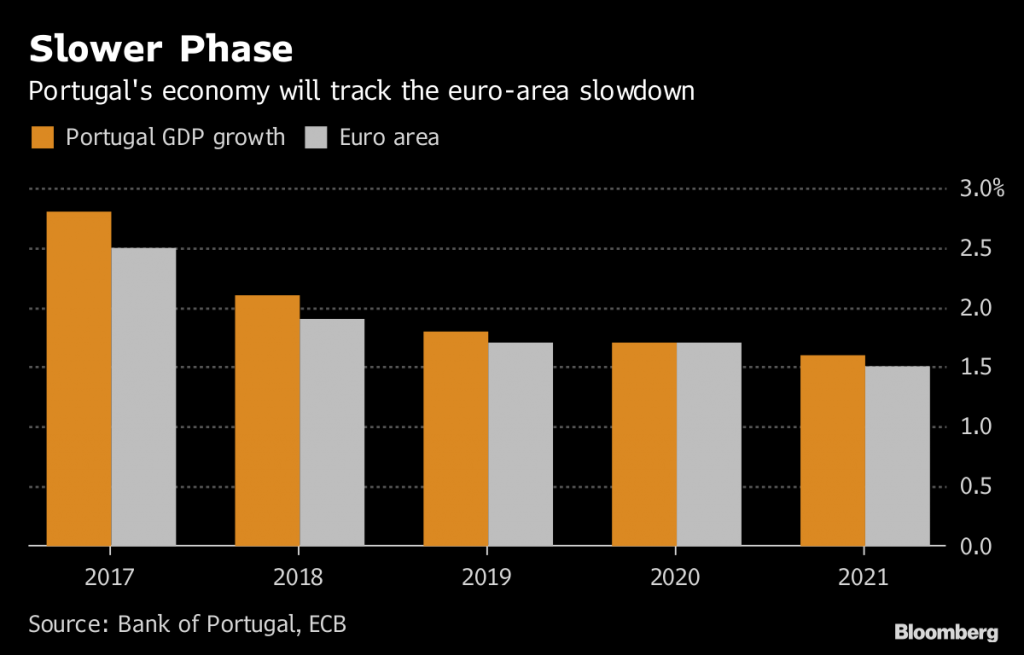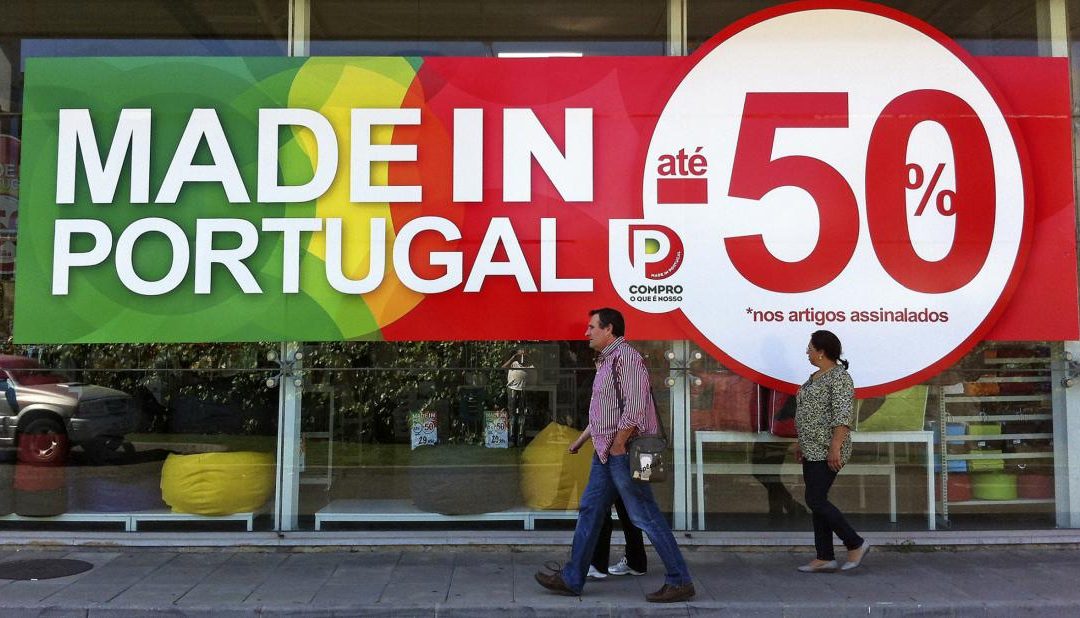Portugal’s economic history of economic growth over the last 20 years has been one of mediocrity regularly punctured by the truly awful. The global economic crisis that began in 2008 was pretty tough for most countries in the world, but the Portuguese economy only returned to the 2008 GDP peak in 2018 – so whilst most economies had a few years of stuggle before putting the worst behind them, it took 10 years of anaemic growth for Portugal to get over the economic crisis.
Now the Bank of Portugal has announced that in 2019, GDP is forecast to grow by 1.7% and then 1.6% in the subsequent two years, so by 2021 the Portuguese GDP will be at 60% of the Eurozone average (a little below the level when it joined the Euro). Given the tens of billions of euros that the EU has pumped into the Portuguese economy and the very low costs of production that Portugal enjoys, it really takes consistent and determined economic mismanagement to so spectacularly shoot the economy in the foot.

We have now been told that the Portuguese Government has the lowest level of investment in its economy (proportional to the size of the economy) of any country in the Eurozone (again despite the free money coming from the EU), but meanwhile the hilariously incompetent centre left governining party (the PS) looks set to be elected again by promising generous increases in salaries and benefits across the public sector as a shameless bribe to a large part of the electorate.
It is astonishing that a centre left party in the developed world can still have so little interest in creating wealth and can be so generous in spending what little money there is, but in this sea of incompetence lies a great opportunity for companies exporting from Portugal: there is no getting away from the fact that the upside to having little to no economic growth is that the costs of running a business remain low (particularly in terms of wages and cost of industrial land), which has meant that the consistent bright spot in the Portuguese economy has been exports (from 1994 to 2019, the average growth in value of exports in real terms has been 6.2%).
Most of the work we do here at PortugalWorks is taking existing Portuguese products and marketing them for export (such as custom cycling clothing, cork products, organizing events in Porto and used port wine barrels). In our experience the products that Portugal produces are of a high quality and a reasonable price, so those looking to export are pushing at an open door, despite the Government’s best efforts to screw it all up. If you are interested in locating production facilities in Portugal or sourcing from Portugal, please contact us at PortugalWorks.

